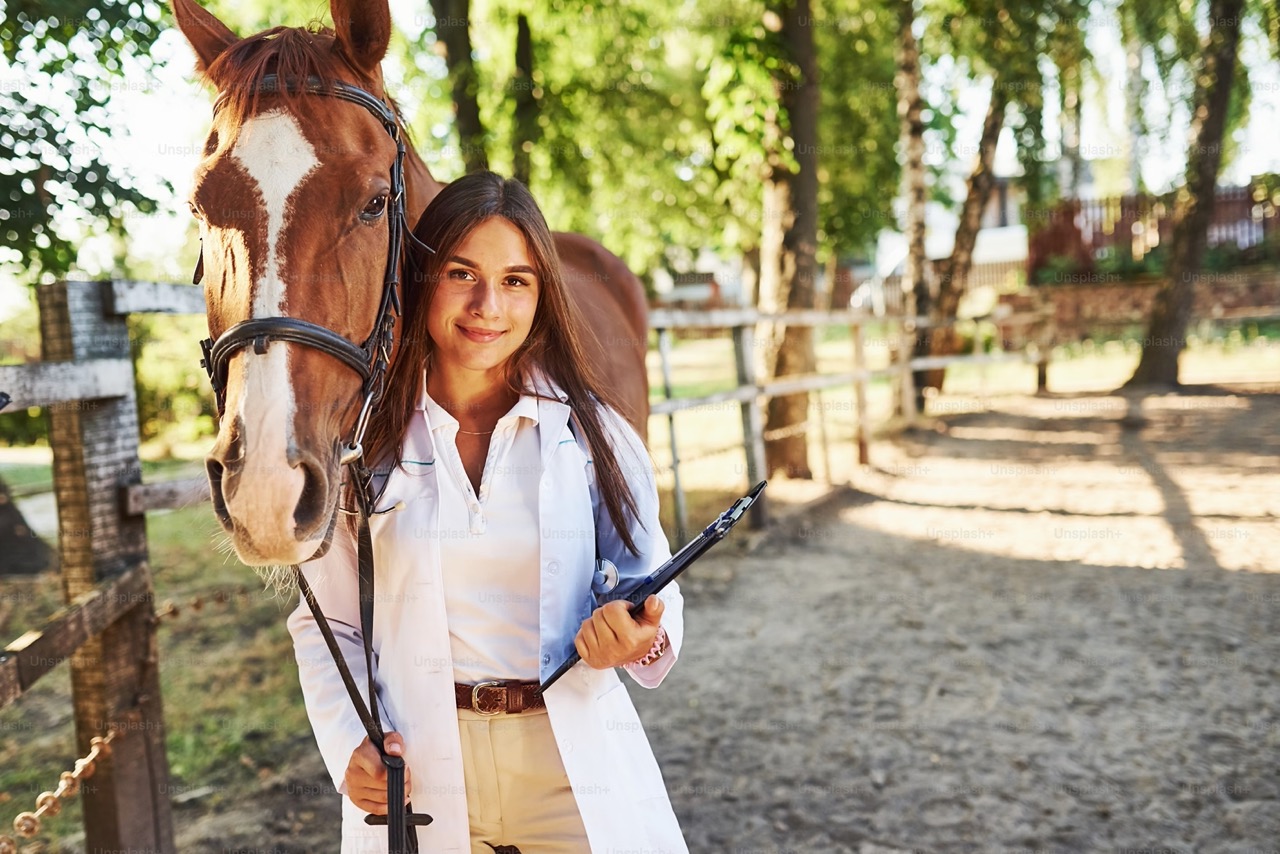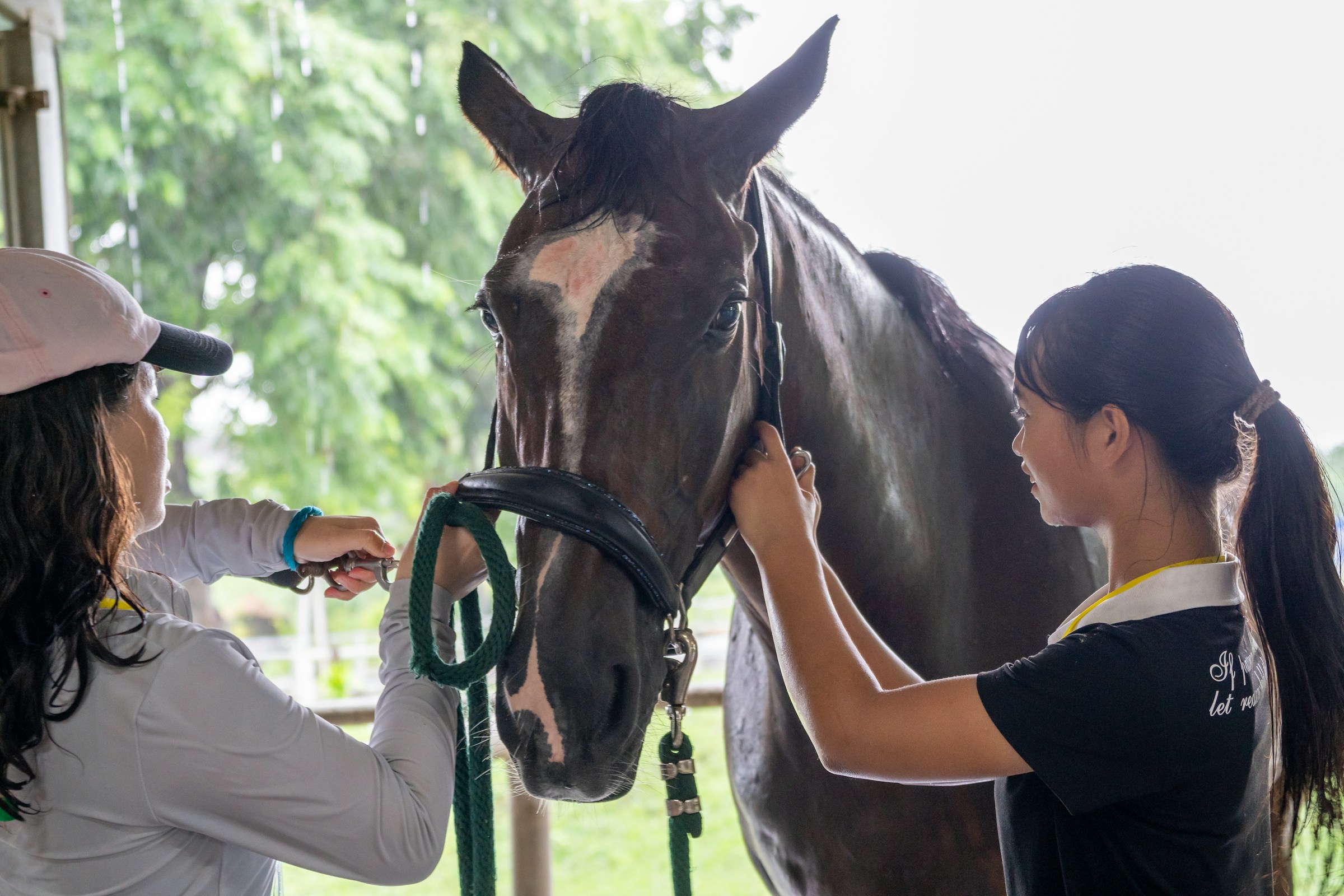Owning a horse is a significant responsibility, involving more than just daily feeding and grooming.
 Among the most crucial aspects of equine care is maintaining a regular schedule of veterinary check-ups. These visits are vital not only for addressing health issues but also for preventing potential problems before they become serious. Regular veterinary care is indispensable for your horse’s health and well-being.
Among the most crucial aspects of equine care is maintaining a regular schedule of veterinary check-ups. These visits are vital not only for addressing health issues but also for preventing potential problems before they become serious. Regular veterinary care is indispensable for your horse’s health and well-being.
Early Detection of Health Issues
One of the primary benefits of regular vet visits is the early detection of health issues. Horses are adept at masking symptoms of illness, so issues might not be apparent until they are advanced. Routine check-ups can help identify issues such as dental problems, respiratory concerns, gastrointestinal issues, parasite infestations, and other chronic conditions that might not be apparent at first glance. This early detection can lead to more effective and less costly treatments, and in many cases, can prevent minor issues from developing into severe problems that could threaten your horse’s life.
Vaccinations and Parasite Control
Regular veterinary check-ups ensure your horse stays up to date with vaccinations, which protect against common contagious diseases such as equine influenza, tetanus, and encephalomyelitis. These diseases can be severe or even fatal, making prevention through vaccination critical.
Additionally, a vet can manage your horse’s deworming schedule based on the specific needs and risk factors of your horse and your area. Parasite control is tailored to individual horses and may vary significantly depending on factors like age, immune status, and environmental conditions. Regular fecal exams can help your vet determine the most effective deworming treatments to keep your horse free from parasites.
Nutritional Advice
A vet can provide invaluable advice regarding your horse’s nutrition based on its age, weight, activity level, and health conditions. Regular check-ups often include discussions about dietary needs to ensure your horse receives optimal nutrition. Adjustments can be made to address issues such as weight gain or loss, performance demands, or changes in metabolism as the horse ages.
Dental Care
Equine dental care is another critical component addressed during regular vet visits. Unlike human teeth, a horse’s teeth continue to grow over much of its lifetime and can develop sharp edges that cause pain and difficulty eating, or even can cause mouth ulcers and infections if not cared for routinely. Regular dental check-ups and care prevent these issues, contributing to the overall health and comfort of your horse.

Peace of Mind
Regular veterinary care provides peace of mind, knowing that you are doing everything you can to ensure your horse’s health and happiness. It also establishes a relationship between your veterinarian and your horse, making it easier for issues to be addressed quickly and efficiently when they arise.
Building a Strong Relationship for Emergency Care
Establishing a strong relationship with your veterinarian is not only beneficial for routine care but is crucial when emergency situations arise. A vet who is familiar with your horse’s health history, temperament, and specific needs can provide more precise and rapid treatment in emergencies. Having a vet who understands the nuances of your horse ensures that in times of crisis, they are better equipped to make quick decisions that could be critical to your horse’s survival. This relationship also means your vet is more accessible and responsive when you need urgent assistance, providing guidance over the phone or prioritizing a visit to your stable when every minute counts. In emergency care, familiarity can dramatically enhance the effectiveness of treatment, increasing the chances of a successful outcome for your horse. It’s important to be aware that many veterinarians may not be available for emergency consultations if you are not an established client. This policy ensures that vets can prioritize and manage the care of horses with whom they are already familiar, making it crucial for horse owners to maintain a regular relationship with their vet to ensure access to emergency services when needed.
In essence, regular vet check-ups are a cornerstone of responsible horse ownership. These visits are crucial for maintaining your horse’s health, performance, and quality of life. They also provide an opportunity to educate yourself about best practices in horse care and to build a partnership with your vet that contributes to the lifelong well-being of your beloved equine friend. Just as with human health, prevention in equine care is always better than cure, and regular veterinary visits are the best preventive measure any horse owner can take.
A Safe Pasture is Just as Important as Regular Vet Check-Ups!
Keeping your horse healthy goes beyond vet visits—it starts with a safe and secure environment. At Ramm Fence, we provide high-quality, horse-safe fencing to protect your equine companion from injuries and ensure their well-being.
🐴 Give your horse the best care inside and out! Explore Our Horse Fencing Solutions and create a safer space for them today.



